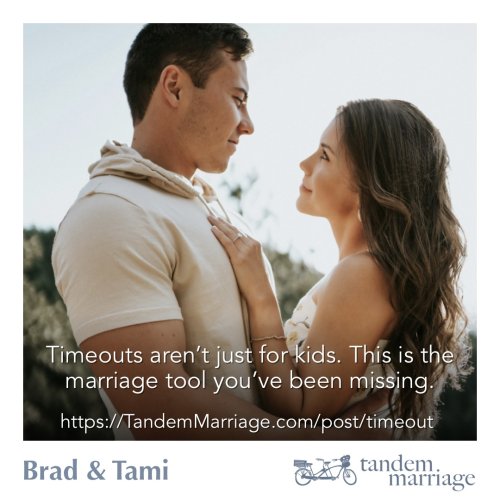Does your marriage have fertile soil? What does it even mean when we say "fertile soil?" This is one of those phrases that is used so often, the true meaning gets watered down. The word fertile means; (of soil or land) producing or capable of producing abundant vegetation or crops. For our purposes in this conversation, fertile soil refers to the material or environment that we plant a seed, a tree, or a marriage into in hopes of producing an abundance of good things in this life.
Do you want your plants to produce an abundance of good things? Of course, you do. Do you want your marriage to produce an abundance of good things? Yes, that is why you are reading this blog post!
Think about these questions for a moment:.
- How do trees get the nutrients they need to grow?
- How do trees retain enough water for continued growth?
- What’s the ideal environment for a marriage to grow?
- The answer: fertile soil.
Matthew chapter 13, verses 1-9 in The Bible is commonly known as "The Parable of the Sower." In this incredibly poignant parable, Jesus tells the assembled crowd:
"A farmer went out to sow his seed. As he was scattering the seed, some fell along the path, and the birds came and ate it up. Some fell on rocky places, where they did not have much soil. They sprang up quickly, because the soil was shallow. But when the sun came up, the plants were scorched, and they withered because they had no root. Other seed fell among thorns, which grew up and choked the plants. Still other seed fell on good soil, where it produced a crop—a hundred, sixty or thirty times what was sown."
Jesus then explains the meaning of the story he just shared. The seeds represent the message of The Kingdom of God. Those seeds that fell upon the path and were quickly eaten up by birds symbolized instances in which The Message (God's Word) is not absorbed or understood. The seeds that fell among the thorns represent a situation where The Message is drowned out and "choked" by the worries and trivial preoccupations of worldly life (such as material success or fame). Seeds that fall on rocky ground signify that The Message has been heard and received with joy, but the seed cannot "root" deeply enough to withstand adversity, because the "soil" of a person's heart and mind is not fertile enough. Only those seeds that fall on good fertile soil – a person who fully understands and embraces the truth of The Kingdom of God – will take firm root and grow into what that seed was intended to be. (This is the symbolic meaning of "Whoever has ears, let them hear.")
Just like a seed, a healthy "marriage tree" also requires the right kind of soil for each of our "seeds" to take root and mature into something healthy. In a sense, Tami and I began our marriage on "rocky ground" per the biblical analogy – we recognized the gift of deep love that we had for each other and took great joy in it, but the soil we had brought to our marriage – our unhealthy ideas about relationships and our lack of maturity – was not fertile soil, and that made it difficult for us to grow deep roots of resiliency, capable of withstanding the challenging "weather" which inevitably came our way.
We desperately needed to amend (or enhance) the soil of our marriage – we needed to do the work required with the right nutrients to turn our dry and rocky soil into the fertile soil that we needed for our marriage to thrive.
At some point in our marriage, after about 6 or 7 years of being married, we met an older couple at a church we had been attending named Jim and Sally. Spending time with Jim and Sally was like adding nutrient-rich amendments to our marriage soil. The more time we spent with them, the more we could recognize the "infertility" we had in our own soil and the harder we worked to improve it.
Some people don’t want to be vulnerable enough to let others into their lives. But isn't that one of the great challenges in a healthy marriage – learning to be vulnerable? You must learn vulnerability in your marriage to allow love and trust to thrive. We have to let our guards down if we want to grow. We have to be vulnerable – not just with each other, but with the people in our lives who care about us. Being vulnerable is the only way we build trust and connection – and trust me, I know it’s hard to do!
Proverbs 27:17 says, "As iron sharpens iron, so one person sharpens another."
Can this be applied to your marriage? We sure think so.
Do you want to know a simple way to assess the health of your marriage soil? Ask your spouse. Seriously, ask. You might say, "I really care about us and want to make sure our relationship does not drift off track. I want to make sure that I don't miss anything. So, on a scale of 1 to 10, how healthy do you think our marriage is?"
I told you that this was a simple question to ask, but it can seem terrifying. What if your spouse yells at you? What if your spouse brings up a laundry list of everything you have ever done wrong? What if this does not go as planned?
The honest truth is that if you get a negative result from asking your spouse a question like this, then that is your answer. Meaning, that you had hoped everything in your marriage was humming along just fine, but it is not. And you need to do something before it gets worse. In other words, if your marriage is not in a good place right now, ignoring that fact will not make it any better! You have to know what you are working with if you want to make progress.
If, on the other hand, your spouse says something like, "I would say that we are currently a 6 out of 10." Do not correct them because this is exactly what you asked them for – their take on the current state of your marriage. You could ask a follow-up question like," What could I be doing to take our relationship up a notch or two?" Then listen intently because what you will hear next, whether you agree with it or not, will likely be some of the best feedback from your spouse's point of view. Once you can understand what your spouse is telling you, you have what you need to form an action plan.
From a very practical standpoint, what should that plan look like?
First, phone a friend.
If you already have a community of healthy marriages around you, you are in a good position to ask for help. In fact, why wouldn't you ask for help?
Second, fight FOR your spouse.
It's all too easy to get wrapped up in the blame game when your marriage is not in a good place. Don't — it never turns out well. Never. Instead, focus on the things you have control over and improve on them. You have control over more than you think. Start with improving how you respond to your spouse.
Third, don't drag your feet.
The majority of the time, most marriages are either improving or getting worse. When you delay in getting the help you need, things will tend to continue their downward spiral. Don't let that happen.
Do what you can. You can make a positive difference in your marriage. You have complete control over improving yourself. You can read a good marriage book or a personal growth book or ask trusted friends for help. You can listen better to your spouse and try to understand what they need. You can read the articles on our Tandem Marriage Blog together and discuss what you are learning about yourself and each other. Yes, you can and you should.
Any gardener knows that healthy soil takes continual work. A good gardener must be planning ahead to keep the soil healthy at all times. A lot of people assume, "I’m going to get married and everything is just going to fall into place from there." Nothing could be further from the truth. You have to be intentional about being the best version of yourself that you can be. You have to be intentional to keep your marriage tree growing, producing fruit, and thriving. This requires healthy and fertile soil. This requires you to keep your marriage a priority.
Once you understand how to keep the soil of your marriage healthy, and that it requires continual work and effort on your part, you will be well on your way to having your very own growing and thriving marriage tree.
This blog article is an excerpt from our forthcoming book called The Marriage Tree; Can Trees Teach Us How To Grow a Beautiful Marriage?
DISCUSSION QUESTIONS:
1. How does Proverbs 27:17 apply to your marriage?
2. On a scale of 1-10 (with 10 being great), how would you rate your marriage?
3. How would your spouse rate your marriage?
4. What are some ways you both came up with to take your "marriage soil" from where it currently is, to a place of much healthier soil?
—-
If you have any comments or questions about this post, we would love to hear from you by using the contact form in the footer below.
By Brad & Tami Miller. Copyright © 2022
Link to: https://TandemMarriage.com/post/soil





